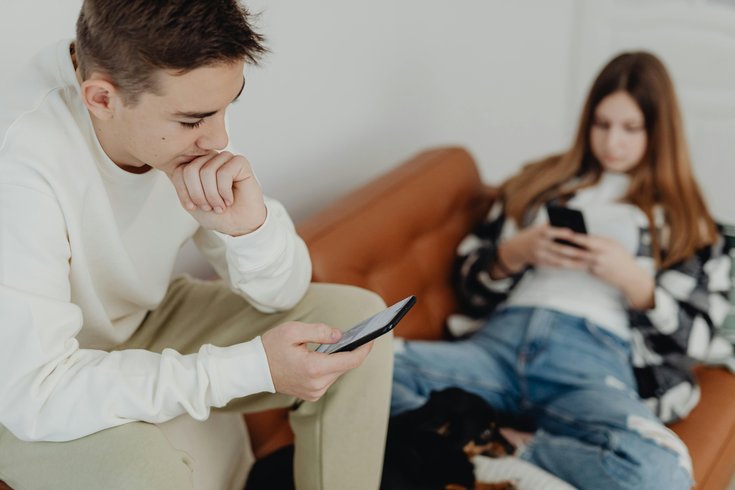
August 19, 2024
 Karolina Kaboompics/Pexels
Karolina Kaboompics/Pexels
Trying to relieve boredom by quickly scrolling through videos makes people more bored, a new study finds.
People often pass time by scrolling social media — perhaps in the hopes of finding some interesting videos to alleviate boredom. But new research has found that endlessly swiping actually may have the opposite effect.
Quickly scrolling through online videos makes people more bored and less satisfied or engaged with the content they are viewing, according to a study published Monday by the American Psychological Association.
The study — which included seven experiments involving 1,200 people from the U.S. and Canada — particularly observed the effects of "digital switching," which is when people watch only short snippets of videos or fast-forward through them. The participants predicted they would feel less bored by switching videos, rather than watching them in full, but the opposite was true.
One two-part experiment asked participants to watch a 10-minute YouTube video without being able to fast-forward through it. Then they were allowed to freely switch between seven, 5-minute videos within 10 minutes. They said they felt less bored when watching the 10-minute video than when they could scroll through multiple shorter videos. They also reported that the experience of watching the 10-minute video was more satisfying, engaging and meaningful.
"Digital switching may make the content of online videos seem meaningless, because people don't have time to engage with or understand the content," lead study author Katy Tam said.
Researchers said the study's findings may not be representative of the U.S. population, because participants in several experiments were Canadian college students, so the findings may differ by age or experience with digital media.
The study did not examine whether shorter attention spans contributed to increases in boredom or digital switching, but there has been growing concern in recent years about shrinking attention spans. The problem is compounded by the crop of social media platforms and messaging apps that are designed to command users' focus. The constant temptation presented by phone notifications, forces the brain to shift gears between tasks. This causes the brain to become used to constant diversions and even begin to habitually seek them out, Time magazine reported last year.
The negative impacts of spending time on social media are well-documented. In April, the American Psychological Association warned of the risks that scrolling and push notifications present – particularly for young people whose brains are still developing. They are more prone to distractions and less likely to disengage from addictive experiences.
Either way, many people will go to great lengths to avoid feelings of restlessness or emptiness that are triggered by boredom, the researchers said. And short videos on platforms like YouTube, TikTok, Facebook and Instagram offer an easily accessible way to do so. People also can get caught up in "doomscrolling," or mindlessly spending large amounts of time consuming negative news. The habit can worsen mental health issues or lead to insomnia, according to the Cleveland Clinic.
There are ways to limit bad scrolling habits. Try putting your phone away, scheduling designated days to be fully offline, deleting apps you don't want to use often, and bringing a book or journal when you're on the go so you have something else to occupy your attention.
You also can set up scrolling time limits by using your phone's alarm feature, the "Focus" app, or options like Instagram's "take a break" feature. When you are scrolling, though, you can get the most out of what you're watching and avoid boredom by taking in videos in full.
"If people want a more enjoyable experience when watching videos, they can try to stay focused on the content and minimize digital switching," Tam said. "Just like paying for a more immersive experience in a movie theater, more enjoyment comes from immersing oneself in online videos rather than swiping through them."
Follow Franki & PhillyVoice on Twitter: @wordsbyfranki
| @thePhillyVoice
Like us on Facebook: PhillyVoice
Have a news tip? Let us know.